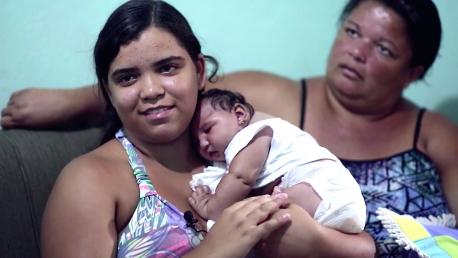
Meet Baby Duda, a Girl Born with Zika-Linked Microcephaly
"A lot of people look at us in a different way," says Cleane, one of three women who have taken in Duda, a baby girl born in Brazil with microcephaly, after her parents were unable to take care of her.
The neurological disorder, which can be caused by the Zika virus, has become a global public concern as reported cases rise sharply across Latin America and the Caribbean.
To date, two babies have been born in the U.S. with Zika-linked microcephaly — in Hawaii and New Jersey. More than 300 pregnant women in the U.S. are currently estimated to be infected with Zika.
Despite experiencing prejudice, the three women are fully committed to raising Duda and finding the treatment she needs to help improve her development.
Learn more about what Zika is, where it occurs, and what UNICEF is doing to help fight Zika around the world.
Please donate to UNICEF's Zika response now.
HOW TO HELP
There are many ways to make a difference
War, famine, poverty, natural disasters — threats to the world's children keep coming. But UNICEF won't stop working to keep children healthy and safe.
UNICEF works in over 190 countries and territories — more places than any other children's organization. UNICEF has the world's largest humanitarian warehouse and, when disaster strikes, can get supplies almost anywhere within 72 hours. Constantly innovating, always advocating for a better world for children, UNICEF works to ensure that every child can grow up healthy, educated, protected and respected.
Would you like to help give all children the opportunity to reach their full potential? There are many ways to get involved.





